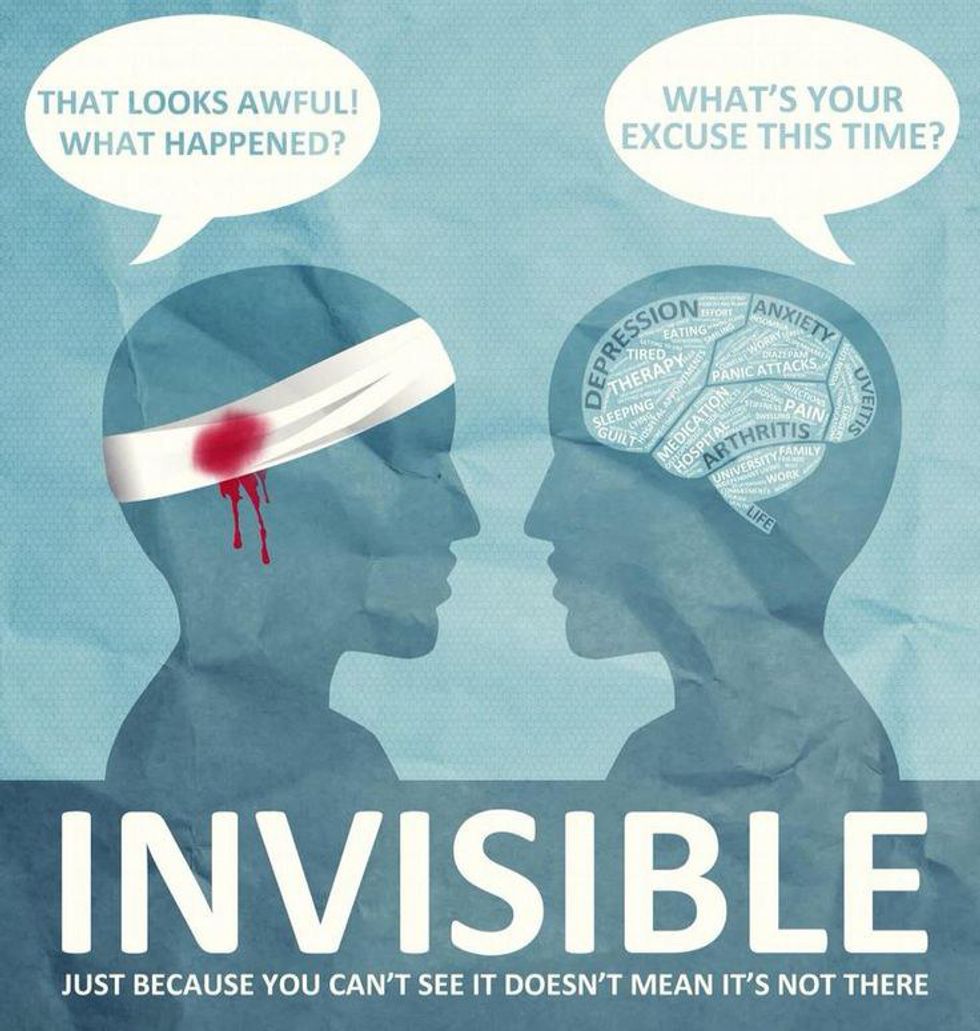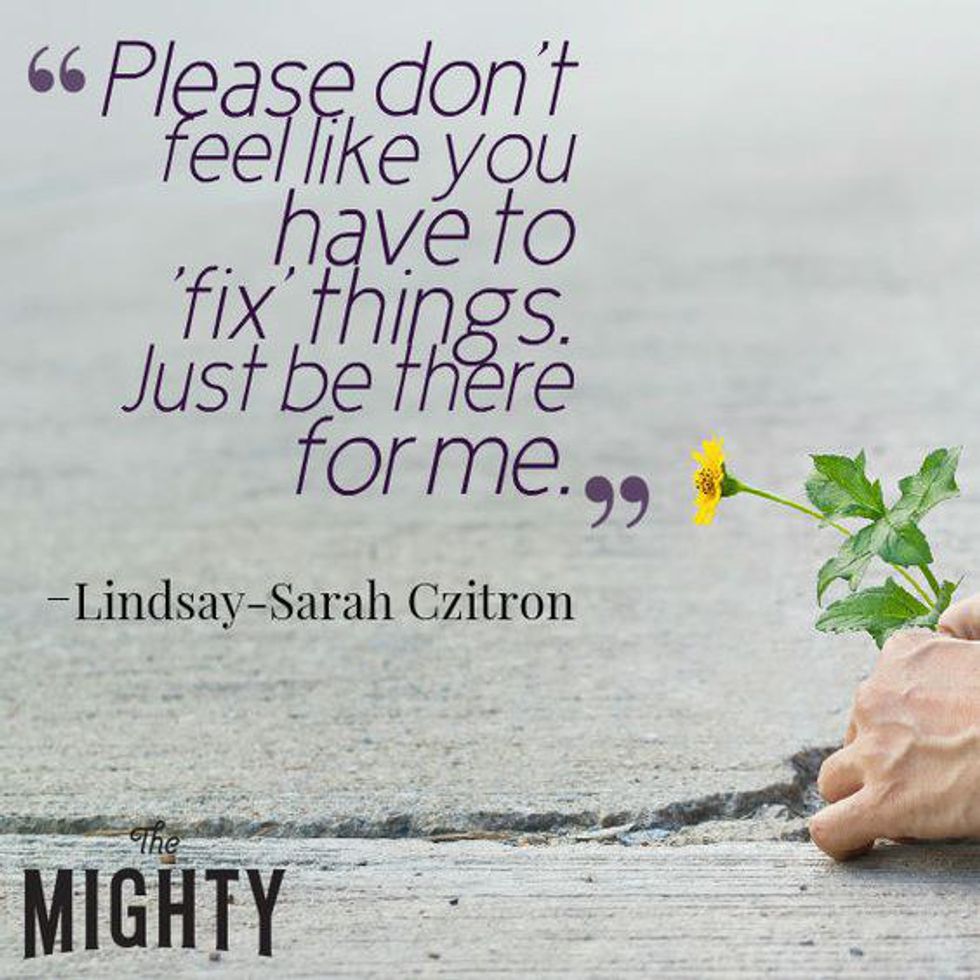Stigma is detrimental. It creates a world too afraid to have a conversation and pushes people into the shadows. It can be somebody with Lived Experience, a survivor of a suicide loss, family members, or a supporter of the cause too. There is a flaw in our system that demonizes those with mental illness and prevents us from knowing how to talk about the rising epidemic.
As somebody who began my journey into mental health with stigmatized interpretations as well as a fair share of ignorance, I was given the opportunity so many are denied. I was able to begin learning from those who were in the center of an incredibly deep struggle. They were not going to hide in the darkness anymore. It is time we learn how to help them out.
Recommended for you
In order to make it easier to understand "invisible illnesses" as they are often called, I will describe them using physical ailments. This is strictly for clarity and is not in any way a statement on those diseases. Well intentioned people sometimes are unsure of how to approach the topic, so do not feel discouraged if you have made these mistakes. This is the perfect time to change how we have the conversation.
We may not have the answer to why.
The fact is that people with a mental illness are struggling. I know it is a default to ask why, but usually the answer is not even clear to those dealing with it. The same goes for when a person dies by suicide. Asking families why their loved ones were in that much pain is insensitive. That thought plagues a lot of minds in the wake of a loss, and may even perpetuate their profound amount of misplaced guilt.
Offer support instead. That is the foundation which recovery is built on.
"Just be happy."
You would never tell somebody with a broken foot to climb a mountain. You would help them surpass that climb. Do the same for those struggling with what you may not see. There are an array of possible causes such as chemical imbalance, major life events and trauma. Fixing those things are not as simple as forcing a fake smile. Express your willingness to be there through those days when they do not feel strong.
Help to find a positive activity like hiking or yoga you can do together.
Understand recovery is a process that takes time.
Supporting somebody in the pit of a struggle who "won't help themselves" is incredibly frustrating. It is important to remember that mental illness is the most powerful illusionist of the modern era. Often, the illness has a quality that discourages help-seeking behavior.
Patience is not easy, but it is crucial. Taking ibuprofen does not yield immediate comfort nor guarantee you will never get a headache again. It allows you to function while you work on the cause of the pain. If the issue persists, you may need to find different medical options. Recovery requires that same process.
Empowering somebody is as simple as reminding them that they are strong and are not alone.
Do not be afraid to ask how I am doing.
There seems to be this fear that asking somebody if they need help is disrespectful. It could not be further from the truth. You never know who needs that support, so always ask. Be ready for the answer to be, "I am not doing so well today."
Starting the conversation can save a life.
Nobody expects you to always understand.
Human beings have an innate desire to be empathetic. We want to help each other using our own experiences as a guideline. As a supporter, you may feel frustrated at yourself for not being able to do this. Here is the thing though: we do not expect you to. You may have questions or you may not know what to say. Being there for somebody does not mean you have all the answers all the time.
You are trying to learn and grow with us. Thank you.





















